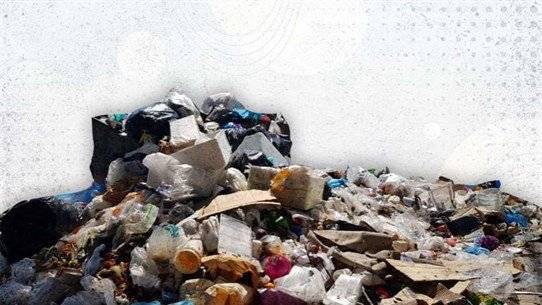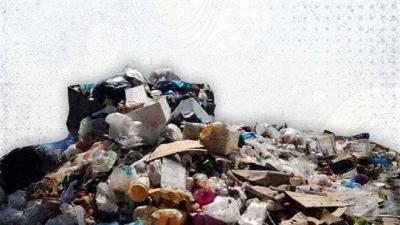Even though the alarm has been raised over garbage, the big explosion is imminent, and solutions are pending on the shoulders of the "irresponsible." Minister of Environment in the caretaker government, Nasser Yassin, asserted that he does not bear the responsibility for the failure to implement the waste management plan, which is already fraught with significant flaws, blaming it on the hierarchical decision-making structure in the state. Prior to this plan, efforts were thwarted by the conflict between profit-driven interests and an academic perspective on the issue, in addition to the negligence of successive governments since the Taif Agreement regarding the proper management of the matter.
The head of the Environment Committee and member of the "Strong Republic" bloc, MP Ghyath Yazbek, warned of the severity of the "creeping crisis" facing Lebanon and its people. He believes that the waste crisis is not a catastrophe that will surprise the state but rather a result of the criminal negligence of the governments akin to ammonium nitrate. In an interview with MTV, he emphasized that "the perspective from which the Minister of Environment approaches the issue does not touch reality in determining how feasible it is to implement."
While the caretaker government searches for "pennies from the widow" in the citizen's pocket to bolster its treasury and secure revenues, some officials argue that addressing the waste issue is a waste of public money. In this context, Yazbek confirmed that exploiting waste by the state and selling it could generate green currency for the treasury amounting to $200 million. He added, "There are many beneficiaries from waste, including the 'Nakesha' who plunder garbage dumps and the mafias behind them, who receive money in dollars for selling waste."
Yazbek did not hide the fact that there is a fundamental flaw in handling the waste issue due to the distribution of responsibilities and some officials exploiting the crisis for populist and regional reasons that conceal self-serving projects. In numerical terms, Lebanon’s waste is estimated at two million tons annually, with more than 50 percent disposed of randomly, while the remaining amounts are subjected to primitive processing. The breakdown of waste is as follows: 54 percent organic waste, 3 percent glass, 14 percent plastic, 1.10 percent metal, and 12.50 percent cardboard and paper.
The tragedy is that the current landfills have either reached their capacity or will do so in a few months coinciding with the winter season. However, the greatest danger lies in the random burning of waste and the anaerobic decomposition of the majority of it, leading to the emission of methane gas, which will inevitably cause explosions. Yazbek described the potential explosion from waste as worse than the explosion in the Port of Beirut on August 4, saying: "Waste is everywhere in the streets, and people are dying from odors and skin and cancerous diseases. This time, it will not affect just one street or city, but the catastrophe will strike all of Lebanon and its people, and the losses will be severe if the landfills explode."
He lamented the absence of immediate solutions that reassure the citizen, especially with the winter approaching, the landfills nearing capacity, water channels filling up, a shortage of labor to remove waste from the streets, and the absence of officials, reminding the Lebanese of the scene of waste in the streets back in 2015. Decomposing waste is a scientific reality with known causes and treatment methods, but the complete failure of the Lebanese state to address such a critical issue places it under suspicion. Based on the principle of "I knew," officials continue to harm the people, "if not with ammonium gas, then with methane gas."




